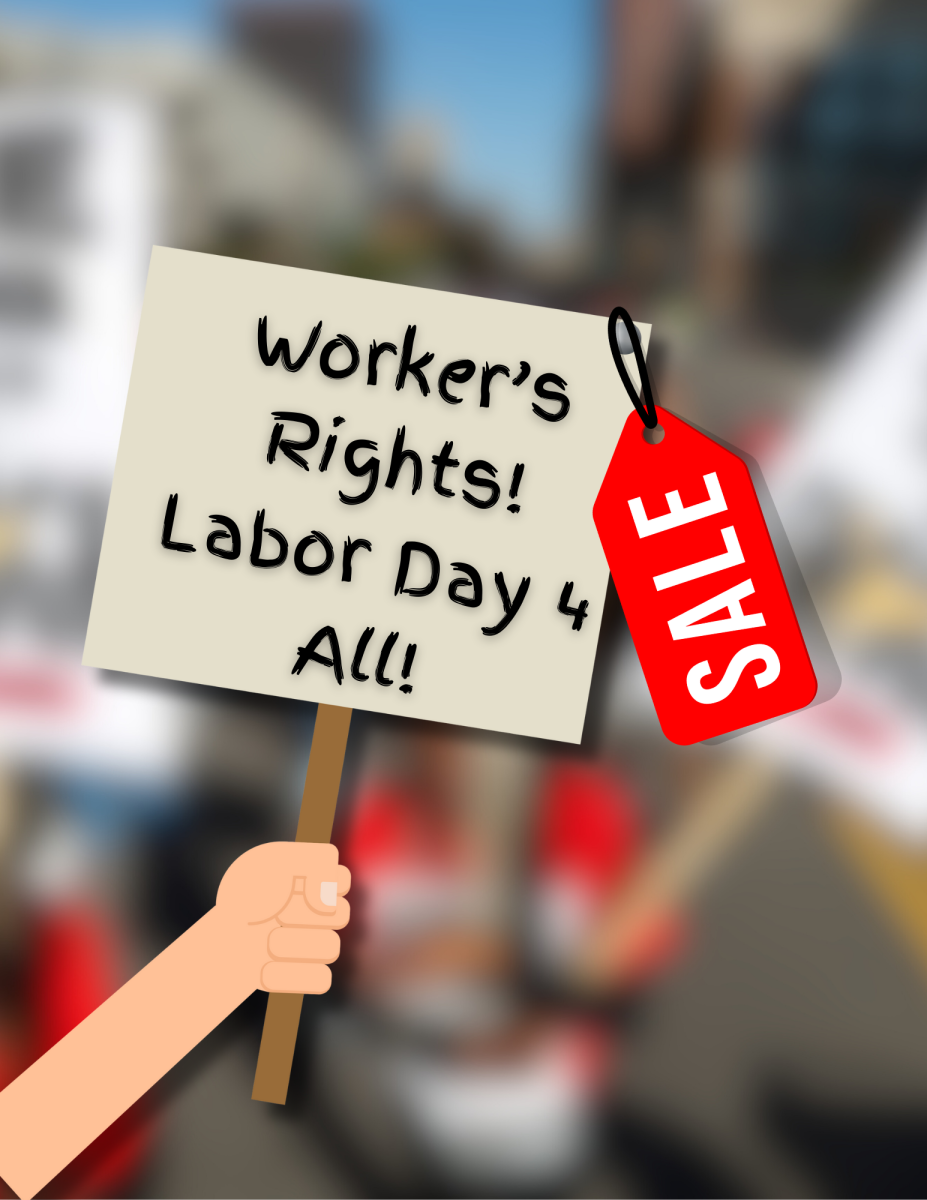It’s 1894. Labor Day was just made a federal holiday celebrating workers’ contributions to America and their freedom from exploitation by profit-hungry companies. People are in the streets parading their victory in the long fight for workers’ rights.
More than 130 years later, getting Labor Day off is exceedingly difficult.
Essential workers, such as health care staff and some government employees, unfortunately can’t miss a day of work to keep society running but are often paid time and a half or double for working a holiday.
But for corporations like Amazon, Walmart and Target, giving employees the day off is unfathomable because it creates a tiny dip in the bottom line that the shareholders will not tolerate.
What many private big businesses will do instead is start grandiose sales events around Labor Day weekend to get customers into stores and drum up extra revenue near the end of the financial quarter.
That profit-chasing policy has led to two serious problems with the long weekend: employees are overwhelmed, and Labor Day has lost all its original meaning.
A 2015 study by the Bloomberg Industry Group found that 41% of all American businesses had at least some employees working on Labor Day, and 80% of large businesses were staffed on the holiday.
Coupled with data from the U.S. Bureau of Labor Statistics showing that employment in service industries — such as grocery stores, hotels and gas stations — has grown over the past 20 years, the numbers show that more people than ever are working on Labor Day.
The BLS study also found that, while workers in financial and professional sectors often get a paid day off for Labor Day, service workers, nonunion workers and part-time employees often worked on the holiday.
For employees who often get no benefits, inconsistent hours and little protection from exploitation by their employers, working on a holiday is nothing new. But working on a day founded on ideas running counter to the policies of their workplaces is certainly an ironic kick in the pants.
Employers have a variety of ways to alleviate the pressure of Labor Day weekend from their workers. While closing the business for a whole day might not be possible, closing early could strike a balance between allowing people to get their gas, food, clothes, or other needs and respecting the holiday’s meaning.
Additionally, rewarding workers scheduled for Labor Day with an extra vacation day or double pay could boost employee morale.
Over a century ago, Labor Day was created to celebrate, respect and reward the contributions workers make to our country. Now, it has morphed into a weekend where employees have to work harder to keep up with sales events and customers, and that needs to change.
Labor Day should be a day for laborers, not their labor.


